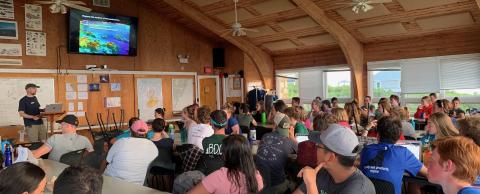
Our Rock Talk Seminar Series is a long-standing and well-loved tradition at SML. Historically, faculty members and guest speakers would gather with students on Appledore Island's rocky shoreline (giving the Rock Talk series its name) to present on a wide range of topics related to natural history, ecology, biology, and more. To stay connected with our community following the pandemic, we transitioned our Rock Talks to a hybrid format and have featured guest speakers from across the world.
Please note: All Rock Talks begin at 8pm on Tuesdays.
Rock Talks 2025 have concluded. Please click on the link under each speaker below to view the recording. We look forward to bringing you even more educational science talks next summer!
Introducing our 2025 Rock Talk Speakers
Beyond the noise: Studying colonial animals through sound
Colonial animals present distinct challenges for conservation managers aiming to monitor their populations. This presentation explores my research uses passive acoustic monitoring to gain insights into the behavior and health of these dense colonies. By listening to the soundscape of colonies, including terns at Isles of Shoals, we can gain insights into the number of individuals, the behavioral state of the colonies, and monitor how they are responding to disturbance, offering a powerful, minimally invasive tool for conservation
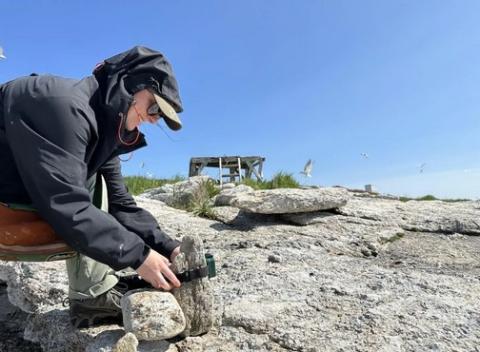
Valerie Eddington is a Ph.D. Candidate in the Department of Biological Sciences at the University of New Hampshire. She is a member of both the Ecological Acoustics and Behavior Lab and the Quantitative Marine Ecology Lab. Her dissertation focuses on how we can use passive acoustic tools to efficiently monitor large aggregations of animals, including colonial bats and seabirds. She earned her B.S. in Biology from Saint Mary’s College where she developed a passion for bioacoustics research. As an undergraduate, she was involved in projects investigating the vocal behavior of small mammals, including northern short-tailed shrews (Blarina brevicauda) and fox squirrels (Scuirus niger).
Bats Across Borders: A Scientific Journey Through Island Bat Fieldwork
This presentation will explore bat species found along the East Coast of the United States and the Caribbean, with a particular focus on populations studied in Staten Island, NY, and St. John, USVI. The discussion will be divided into two sections: the first will highlight bat species documented in Staten Island, along with an overview of species found in the New Hampshire/Maine area. The second section will focus on St. John, presenting findings from field research conducted over the past decade. The talk will cover mist-net capture data, acoustic data, and detailing species diversity and behavioral observations recorded during field studies. Additionally, it will explore the impacts of White Nose Syndrome (Pseudogymnoascus destructans) on bat populations, alongside other environmental stressors. The presentation will conclude with a discussion on conservation strategies, and what we can do to help spread awareness and protect this vital species.
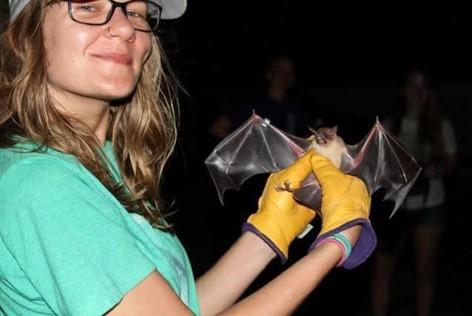
Danielle Fibikar was born and raised on Staten Island, New York, and earned her M.S. in Biology from the College of Staten Island (CSI). Since 2016, she has worked as an adjunct instructor of biology at CSI. Over the past decade, her research has focused on studying bat populations on Staten Island and St. John, U.S. Virgin Islands. Danielle is passionate about educating the public on the ecological and economic importance of bats. Throughout her career, she has observed that fear of bats often stems from misunderstanding. Danielle believes that education is the key to reshaping the public view and eliminating the negative stigma surrounding these important species. Her goal is for people who attend her presentations to leave with a newfound respect and appreciation for bats and their contributions to the ecosystem.
Community-scale Steelhead Trout Operations in New Hampshire: Sustainability from Hatchery to Harvest
The University of New Hampshire, Center for Sustainable Seafood Systems completed successful growth and harvest of 4387 kg of cleaned steelhead trout (Oncorhynchus mykiss) during the 2023-2024 season. The operation took place at one of the UNH coastal aquaculture sites permitted for stocking 7000 juvenile trout in a community-scaled, integrated multitrophic aquaculture system called the AquaFort. The AquaFort has two containment sections, each approximately 6-m x 6-m x 4.57-m, for growing fish. The fish originate as a specific strain of rainbow trout eggs, hatched and grown in a freshwater raceway facility in Ossipee, NH. For this season, two size cohorts were investigated. The first cohort of 2000 fish was stocked into the saltwater AquaFort on October 24, 2023, at a mean size of 304 grams. The second cohort of 2000 fish was stocked in the adjacent containment section on December 1, 2023, at a mean size of 148 grams.
This presentation will focus on Aquafort operational datasets and define components of environmental, welfare and economic sustainability. The datasets will include growth and harvesting statistics from October to September for the first, higher performing cohort that grew to a mean size of 2.5 kg, with some individuals approaching 5.5 kg. Datasets will show how the community-scaled system can be categorized as a non-Concentrated Aquatic Animal Production facility by the EPA-National Permit Discharge Elimination System based on small harvest biomass and feeding rates. By maintaining accurate growth and harvest datasets, this seafood system can also be managed to keep stocking densities below the nominal threshold of 22 kg m-3, appropriate for fish welfare. Most of the harvested fish were distributed and sold fresh to local markets in Portsmouth, NH with some hot-smoked in Boston, MA. Sales have approached $70,000. The team is now investigating additional market opportunities as a second year of Aquafort operations are underway.
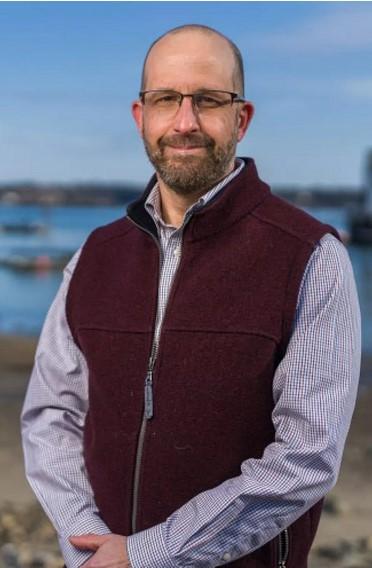
Behemoths and Baleen: Revealing the Hidden Lives of Whales
Whale baleen is a remarkable structure, unrivaled in the animal kingdom. In addition to being a highly adaptive filter feeding apparatus, it is an accreting, metabolically inert matrix holding compounds that reflect a whale’s physiological state at the time of tissue formation. Our research team is measuring biogeochemical compounds - including stable isotopes (d13C, d15N, compound specific) and hormones (reproductive, glucocorticoid, metabolic) – to build retrospective endocrine and ecological histories of North Atlantic right whales using necropsied baleen (currently n=40 individuals collected between 1975-2024). The goals of this study are to reconstruct patterns and individual variability in (1) parameters of reproductive cycles including gestation period, interbirth interval, reproductive rate, male seasonality, and sexual maturity; (2) incidences and severity of natural and anthropogenic stressors; (3) migration behavior, foraging ecology, and nutritional responses; and (4) long-term shifts in the aforementioned factors due to climate change. Measured biogeochemical profiles are chronologically matched with data on whale life-history, visual health and field observations to provide insights into long-term trends. Here, we report endocrine and stable isotope data from adult female Eg1281 Punctuation to examine her recent reproductive history and stress profile. This talk will discuss the status of the North Atlantic right whales broadly and reflect on our role in ocean stewardship and endangered species management.
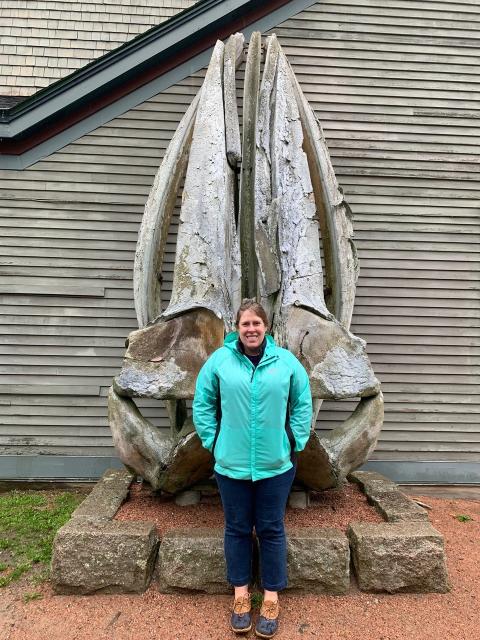
Nadine Stewart J Lysiak is a Research Scientist in the Wildlife and Ocean Health Lab at the Anderson Cabot Center for Ocean Life at the New England Aquarium and holds a Guest Investigator appointment at the Woods Hole Oceanographic Institution. She has 20 years’ experience studying whales in the field and laboratory. Her work uses biogeochemical analysis of baleen plates from mysticete whales to understand their movement patterns, foraging ecology, reproduction, and stress physiology – ultimately informing conservation and management efforts for threatened species. She is also a faculty member at the Shoals Marine Laboratory and has taught the Marine Mammal Biology course since its inception in 2014.
On the importance of animal variation
Nick is broadly interested in examining animal form & function using the lenses of comparative anatomy, muscle physiology, and biomechanics. His research centers around two comparative themes: 1) exploring the diversity of vertebrate musculoskeletal systems; and 2) linking physiological properties of muscles to whole-organism performance. Both themes are ideally suited to collaborative studies with student researchers because they involve tangible interactions ("How wide must a predator open its mouth to eat a given prey?") and intrinsically relate to how one's own body moves and functions. The majority of his career has been spent studying fishes, and he is particularly interested in how organisms obtain and process their food. Methods and tools employed in the Gidmark lab include CT scanning, 3D printing, Animal surgery, 3D biomechanical modelling, electromyography (muscle activity), High-speed videography (light and x-ray), Muscle stimulation & force measurement, Xray Reconstruction Of Moving Morphology (www.XROMM.org), and Clearing & staining.
Islands, Archipelagoes, and Atolls: Discovering Ecology & Evolution

Originally educated as a biologist, Dr. Kimler worked as a field ecologist in industry before his doctoral work. He received his Ph.D. in Ecology & Evolutionary Biology from Cornell University in 1983, with a dissertation on the history of debates amongst evolutionists over Darwinian explanations of animals’ mimetic coloration. He was a National Science Foundation NATO Postdoctoral Fellow at the University of Leeds, investigating the history of genetics and ecology in twentieth century Britain. Dr. Kimler has been teaching at NC State since 1986 and has been a faculty member at SML for the past 30 years.
Small birds, big movements: Exploring the migratory and foraging movements of Gulf of Maine Common Terns (Sterna hirundo)
Movements are central to much of animal life, impacting the dynamics of individuals, populations, and ecosystems and contributing to ecosystem diversity and energy transfer. Animals move to forage, find mates, select habitat, and avoid predation or competition, resulting in a large diversity of movement patterns, even within species. This presentation will explore research on two critical but distinct movement behaviors of Gulf of Maine Common Terns: foraging and migration. In the first study, we quantify the drivers of Common Tern foraging movements among years of variable prey availability on the Isles of Shoals breeding colony to better understand how future climate-driven changes to preyscapes might impact seabird foraging and reproduction. In the second study, we detail the space use and movement behavior of Gulf of Maine-breeding Common Terns across the full non-breeding cycle to help inform conservation efforts in the face of impacts from anthropogenic infrastructure, pollution, and climate change. Together, these studies highlight the diverse functions of movement and the critical insights that movement data can lend to our understanding of life history, behavior, and conservation.
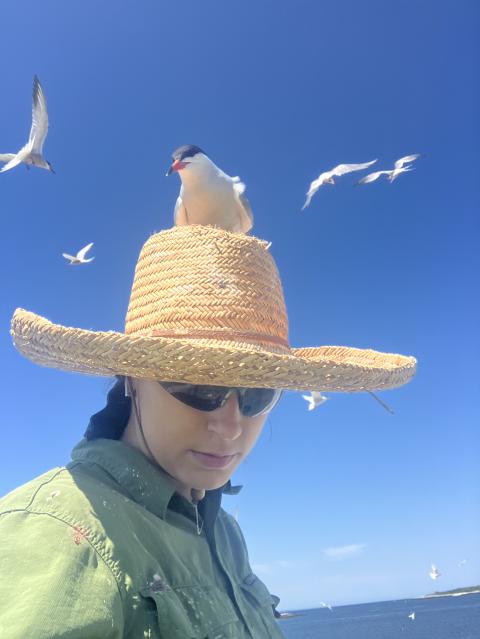
Aliya Caldwell received their BS in Ecology, Evolution, and Natural Resources from Rutgers University in New Jersey, during which time they joined SML first as an intern and later as a seabird technician. Currently, Aliya is a PhD candidate in Nathan Furey’s Fish and Movement Ecology Lab at the University of New Hampshire and works in collaboration with the Isles of Shoals Tern Conservation Program. Aliya’s dissertation research explores the movement and trophic ecology of Gulf of Maine-breeding Common Terns, leveraging long-term seabird diet and fisheries datasets alongside contemporary GPS telemetry and eDNA techniques to understand Common Tern foraging dynamics and the utility of terns as ecosystem monitors.
The Physical Internet Surfs Under the Waves: SubCom Submarine Fiberoptic Networks
SubCom engineers, manufactures, and installs subsea fiber optic data cables - the unsung heroes of global communication. With an unrelenting focus on quality, reliability, and value, SubCom offers flexible end-to-end building blocks for the high-tech networks that are the backbone of the world's digital infrastructure. While the company's origins date back to the mid-19th century, SubCom has deployed enough cable to circle the equator more than 25 times since its entry into the communications industry in 1955. I plan to touch on the engineering, manufacture of the cable that found its way right to the doorstep of Sholes Marine Lab on Appledore Island and share as much as I can about some of the interesting subsea projects and technologies our cables connect to shore.
Albert Carpinteyro has worked at SubCom for over 17 years and his projects have taken him to over 40 countries. From the largest cities in the world to tiny atolls in the Pacific, connecting these places around the globe to the greater global networks has been a passion and adventure of a lifetime. After many years of travel, Albert began working specifically in Oil&Gas & Scientific projects: integrating cable used in hydroacoustic stations, landing cables topside on some of the worlds largest oil platforms, splicing in cables for subsea observatories near active hydrothermal vents, and of course landing a cable on Appledore Island.
Albert graduated from Rutgers University in 2008 with a BS in Material Science and Engineering. He is currently operating as a Project Manager at SubCom LLC. He has over 15 years of submarine cable landing and terrestrial installation experience.
Sensing the Ocean with Acoustics
Sound waves propagate well through water, making them useful for studying the ocean at various depths and distances. Acoustics can be used to study the ocean's physical, biological, geological, and chemical properties and processes. Example of topics involving the use of acoustics in oceanography include measuring temperature across ocean basins to monitor climate change, measuring currents and mixing to understand heat transported locally and globally, detecting marine mammals for behavioral and population studies, and mapping the seafloor for safety in navigation and for habitat studies. In this talk a short overview of the various ways sound can be used to study the ocean will be given followed by two more specific examples of my own recent research related to measurements of photosynthetically produced bubbles in seagrass meadows and measurements of breaking internal waves.
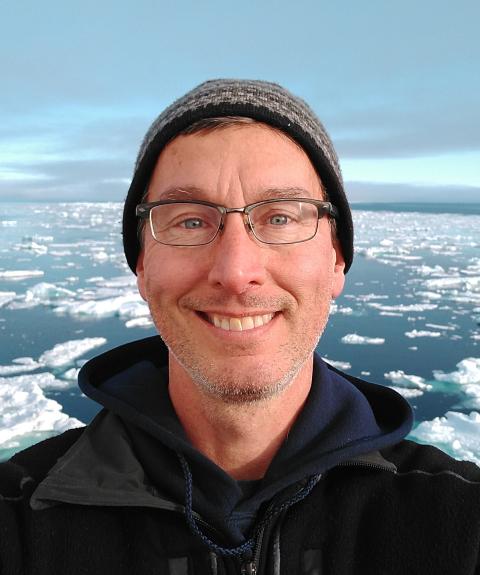
Dr. Anthony Lyons is currently a Research Professor in the Center for Coastal and Ocean Mapping and is the Associate Director for Research in the Center for Acoustics Research and Education. He received the B.S. degree in Physics, summa cum laude, from Henderson State University, Arkadelphia, AR, in 1988. After receiving his PhD in Oceanography from Texas A&M University in 1995, Dr. Lyons worked in the Fine-Scale Acoustics and Oceanography Group at the SACLANT Undersea Research Centre, La Spezia, Italy, until 2000 where he was involved in a variety of projects in environmental acoustics and oceanography. Before taking his position at the University of New Hampshire, Dr. Lyons was a Senior Scientist at the Applied Research Laboratory at Penn State and a Professor of Acoustics in Penn State’s Graduate Program in Acoustics (2000 - 2014). While on sabbatical, he worked in the Electrical and Computer Engineering Department at the University of Canterbury, Christchurch, New Zealand, in 2008. Dr. Lyons also worked for the US Office of Naval Research Global as an Associate Director in 2008 and 2014 and was a Visiting Scientist at the Centre for Maritime Research and Experimentation, La Spezia, Italy in 2023. His research projects have included studies of shallow-water acoustic propagation, acoustic interaction with the seafloor, characterization of seafloor sediments and high-resolution oceanographic measurements. Dr. Lyons was awarded, with the recommendation of the Acoustical Society of America, the Institute of Acoustics' (U.K.) A.B. Wood Medal in 2003. He is a Fellow of the Acoustical Society of America (2007) and a member of the IEEE Oceanic Engineering Society.
Microscopic beasts and how to find them: molecular surveys reveal hidden marine biodiversity from the microcosmos
For centuries, scientists have studied microbes by growing them in the lab, using an in-lab method called culturing. While groundbreaking in its time, this approach reveals only a tiny fraction of the microbial world, since it's nearly impossible to recreate the range of microbial environments: from the superheated, chemical-rich waters of hydrothermal vents to the toxic battlegrounds of disease lesions, where microbes compete for survival. Since the late 1900s, scientists have pushed the frontier by using DNA sequencing to uncover the true extent of microbial biodiversity. Through molecular surveys, also known as metabarcoding, we can target specific genetic barcodes to detect entirely new microbial communities, including Earth’s most extreme and unreachable environments. Beyond just identifying who is there, RNA-based methods now allow us to explore what these microbes are doing, revealing their lifestyles and survival strategies through the protein pathways they express. This breakthrough in molecular biology has opened the door to a new way of exploring the microcosmos, full of organisms with strange, beautiful, and unexpected ways of surviving.

Brad is a Canadian postdoctoral researcher currently at the University of Miami’s Cooperative Institute For Marine and Atmospheric Studies. Earning his doctorate from the University of Miami’s Rosenstiel School for Marine, Atmospheric, and Earth Science, Brad primarily investigates tropical coral holobionts (host and collective microbiome) using molecular biology ‘omics tools such as metabarcoding and transcriptomics. His Ph.D. dissertation was understanding marine health and disease, investigating healthy corals (Pseudodiploria strigosa) over natural diel cycles to assess their health at the molecular level and how disease impacts normal holobiont structure and function. Spending well over a decade researching coral stress and disease, his goals are to better understand the cellular response mechanisms to disease to help mitigate future outbreaks.
Astrangia Things: Unraveling temperate coral symbiosis using isotope ecology

Temperate corals, like Astrangia poculata - the northern star coral, are ecologically and biologically distinct from their tropical counterparts. In her talk, Taylor will explore the ecological mystery of facultative symbiosis and introduce viewers to the exciting world of isotope ecology! Together, these two ideas led to a fascinating discovery that may change the way researchers approach temperate coral science.

Dr. Taylor Lindsay is starting her postdoctoral research on temperate coral energetics at Tufts university. She graduated with her Bachelor's from the University of New Hampshire where she conducted work on tree hydrology and the benefits of multicultural and multidisciplinary work in environmental sciences. After spending the summer at SML as the lab coordinator in 2019, Taylor moved on to her PhD at the University of Rhode Island. There, she studied the effects of light on tropical and temperate coral biology. She also spends much of her time working to improve equitable access to the sciences and fostering inclusive pedagogy in her classes. You can connect with her on instagram @t.lindsay.sci or bluesky @t-lindsay-sci.
Tending the Tides: Workforce Development in Aquaculture
This talk explores the development of the nation's first registered aquaculture apprenticeship, created in 2022 by the Maine Aquaculture Association in partnership with the Gulf of Maine Research Institute. Designed to address one of the sector’s most pressing challenges—workforce development—the apprenticeship trains the next generation of sea farmers through hands-on training and technical instruction. This presentation includes a screening of Tending the Tides, a 28-minute documentary film that follows several apprentices from different cohorts. These new farmers come from a wide range of backgrounds and many relocated to Maine to participate in the program. Their stories offer a firsthand look at the motivations, challenges, and opportunities that come with entering the aquaculture field. Through their voices, the film highlights why growing Maine’s aquaculture sector matters—and why workforce development is key to its future.
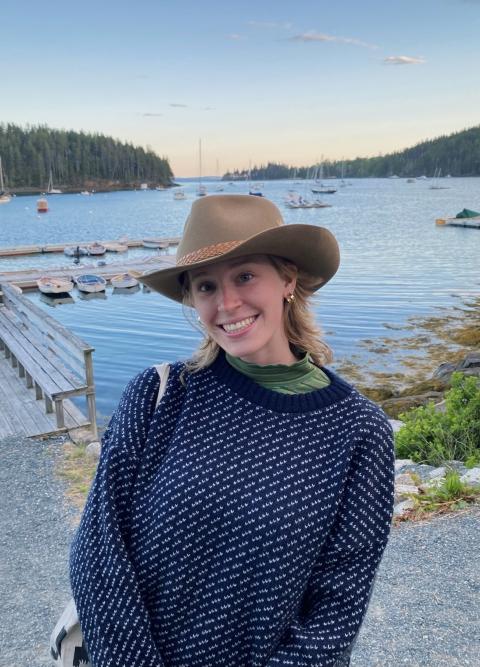
Trixie earned her B.A. in Spanish and Criminal Justice from the University of Maine in 2022. After graduating and moving to southern Maine, she was introduced to aquaculture through her work on an oyster farm in Brunswick, where she exercised her creative skills to tell the farm’s story through social media. Her current role expands on what MAA has done to date by building out new and enhanced social media campaigns, sharp video production and design, and other key methods of outreach, both online and in person. She is passionate about farmer-forward storytelling that amplifies the narratives of the people who shape the industry, showcasing their personal accounts of working on the water, and emphasizing why farming is more than a job.
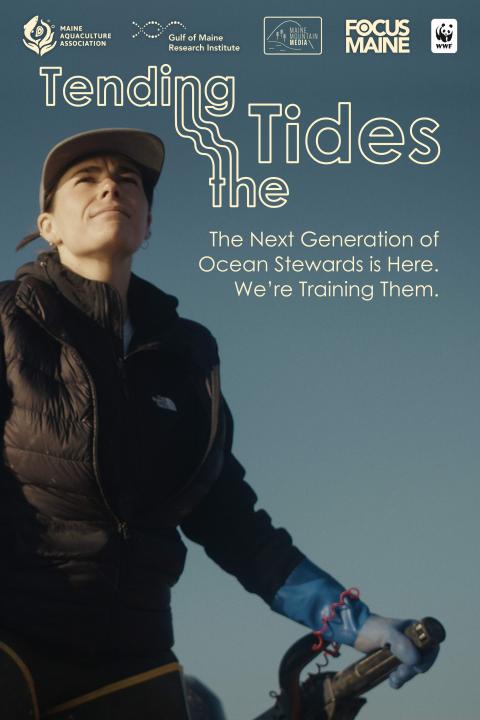
Crustaceans as Sentinels of Change in the Gulf of Maine

Dr. Jason Goldstein is the Director of Research at the Wells National Estuarine Research Reserve. Jason leads the Reserve’s ecological research and monitoring programs that advance our knowledge and understanding of coastal ecosystems, communities, and natural resources in the Gulf of Maine. Dr. Goldstein’s area of research focuses on crab and lobster fisheries and the effects of climate change on reproduction, physiology, and movement ecology. Dr. Goldstein earned his B.S. in Biology from the University of Massachusetts Dartmouth, a Master’s degree from Old Dominion University, and did his PhD. work at the University of New Hampshire with Professor Emeritus Win Watson. Jason was awarded a Fulbright Postdoctoral Fellowship at the University of Haifa in Israel and currently is an affiliate research professor at UNH’s School of Marine Science.
Past Seminar Recordings
The Aleutian Island Golden King Crab fishery: a case study in large-scale cooperative research- Chris Siddon (2024)
All That Live Must Die: Exploring Microbial Mortality in the Ocean - Dr. Liz Harvey (2020)
Bringing the Internet of Things to the Underwater World- Fadel Adib- 2023
Calling Whales and Chorusing Fishes as Sentinels of Human Influence on Marine Ecosystems - Dr. Aaron Rice (2020)
Community-Based Collaborative Fisheries Research: Fishermen and Scientists Working Together - Owen Nichols (2020)
Cooperative Research: Engaging Fishermen to Advance Science and Sustainability - Dr. Anna Mercer (2021)
Evolutionary physiology of amphibious fishes- Andy Turko- 2023
Exploring our Oceans Through Sound- Jennifer Miksis-Olds (2024)
From Snail Breathing to Coastal Resilience: An Early Career Quest- Rebecca Atkins (2024)
The Global Impact of Fisheries and Global Warming on Marine Ecosystems - Dr. Daniel Pauly (2020)
If Life Gives You Green Crabs - Make Dinner and a Cocktail!- Gabriela Bradt- 2023
Investigating angry ants and grumpy gulls: A decade of inspiring undergraduate research in the Isles of Shoals- David Bonter (2024)
New Techniques for Studying Old Questions about Calcification in Corals - Dr. Loretta Roberson (2021)
NOAA Science &Technology: Accelerating Innovation in the 21st Century - Rear Admiral Timothy Gallaudet (2020)
Out of our Depth: Interdisciplinary Science for Marine Mammal Conservation- Kristina Cammem- 2023
The origin and evolution of cnidarian stinging cells- Leslie Babonis- 2023
Physiological Responses to Environmental Change: Insights from Polluted Lives of Killifish - Dr. Jayasundara (2020)
Red Herrings, Misleading Results and Redefining a Disease: Sea Star Wasting in a Changing Ocean - Dr. Ian Hewson (2020)
Rockweed: Foundation Species, Harvestable Resource - Hannah Webber (2020)
Sea lions remember prey hot spots to maximize hunting efficiency- Mike Sigler (2024)
Skin, Scales, Fangs, and Waveforms: Multidisciplinary Approaches to Studying Fish Biomechanics - Dr. Chris Kenaley (2021)
Social Evolution in Anemonefishes- Peter Buston- 2023
Trophic Relationships in the Benthos: Feeding Morphology and Ecology of Macroinvertebrates – Dr. Maya DeVries (2020)
Under Pressure: Sharks and the Science of Stress- Heather Marshall (2024)
Using Science Communication in the Search for Lost Sharks – Vicky Vásquez (2021)
Weird and wonderful hagfishes- Doug Fudge (2024)
Assessing the resilience and recovery of important recreational fish species to extreme events in Coastal Texas- Ana Silverio- 2023
Arctic Seabirds as Sentinels of Climate Change & Anthropogenic Stressors in Marine Ecosystems - Dr. Emily Choy (2021)
A bird’s eye view of a changing Gulf of Maine: Insights from the Isles of Shoals Seabird Ecology and Conservation Program- Elizabeth Craig (2024)
Climate Change and Alaska Marine Ecosystems - Dr. Mike Sigler (2020)
Climate Change, Adaptation, and Resilience in Northeast U. S. Fishing Communities - Dr. Kathy Mills (2021)
Exploring Global Change in the Ocean - Dr. Brian Cheng (2020)
From sea minks to great auks: shifting ecological baselines in the Gulf of Maine- Alexis Mychajliw- 2023
The Impacts of Warming Due to Climate Change in the Gulf of Maine Ecosystems - Michelle Staudinger (2020)
The Rolling Stones: Rock Band or Grains on a Beach?- Diane Foster (2024)
Sea Rescue: Marine Species Partnerships Restoring Our Coastal Ecosystems - Dr. Brian Silliman (2020)
Understanding Changes in Kelp Forests Around the World and Around Appledore - Dr. Jarrett Byrnes (2020)
6000 Years of Shoals History Through Archaeology and Mapping - Dr. Robin Hadlock Seeley & Dr. Nathan Hamilton (2020)
Aristotle Onassis Meets the Seacoast of New Hampshire- Dudley Dudley (2024)
Childe Hassam & Celia Thaxter on the Isles of Shoals - John Coffey (2020)
Childe Hassam and Diagnostic Rocks of Appledore - Dr. Hal Weeks (2020)
Here we are: history, biology, and interconnections on Appledore Island- Jessica Bolker (2024)
How viruses rule the planet: the spread of bird flu in seabirds, seals, and humans- Nichola Hill- 2023
Indigenous Sentinels Network: Tribally-Led Environmental Monitoring in the Pribilof Islands, AK - Dr. Lauren Divine (2021)
Rachel Carson and the Gulf of Maine, With Comments on Woods Hole, MA - Dr. Willy Bemis (2020)
